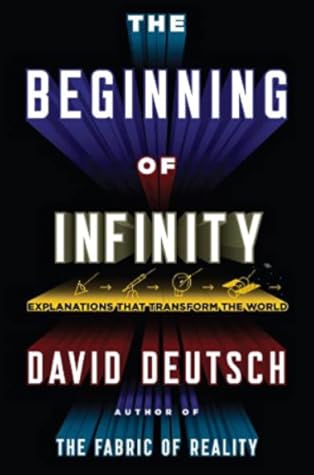More on this book
Community
Kindle Notes & Highlights
Started reading
April 18, 2022
Mathematicians realized centuries ago that it is possible to work consistently and usefully with infinity. Infinite sets, infinitely large quantities and also infinitesimal quantities all make sense. Many of their properties are counter-intuitive, and the introduction of theories about infinities has always been controversial; but many facts about finite things are just as counter-intuitive. What Dawkins calls the ‘argument from personal incredulity’ is no argument: it represents nothing but a preference for parochial misconceptions over universal truths.
The whole of the above discussion assumes the universality of reason. The reach of science has inherent limitations; so does mathematics; so does every branch of philosophy. But if you believe that there are bounds on the domain in which reason is the proper arbiter of ideas, then you believe in unreason or the supernatural. Similarly, if you reject the infinite, you are stuck with the finite, and the finite is parochial. So there is no way of stopping there. The best explanation of anything eventually involves universality, and therefore infinity. The reach of explanations cannot be limited
...more
Whenever we refer to infinity, we are making use of the infinite reach of some idea. For whenever an idea of infinity makes sense, that is because there is an explanation of why some finite set of rules for manipulating finite symbols refers to something infinite. (Let me repeat that this underlies our knowledge of everything else as well.)
So there is something special – infinitely special, it seems – about the laws of physics as we actually find them, something exceptionally computation-friendly, prediction-friendly and explanation-friendly. The physicist Eugene Wigner called this ‘the unreasonable effectiveness of mathematics in the natural sciences’. For the reasons I have given, anthropic arguments alone cannot explain it. Something else will.
The possibilities that lie in the future are infinite. When I say ‘It is our duty to remain optimists,’ this includes not only the openness of the future but also that which all of us contribute to it by everything we do: we are all responsible for what the future holds in store. Thus it is our duty, not to prophesy evil but, rather, to fight for a better world. Karl Popper, The Myth of the Framework (1994)
But there is a crucial difference between the human condition and Russian roulette: the probability of winning at Russian roulette is unaffected by anything that the player may think or do. Within its rules, it is a game of pure chance. In contrast, the future of civilization depends entirely on what we think and do. If civilization falls, that will not be something that just happens to us: it will be the outcome of choices that people make. If civilization survives, that will be because people succeed in solving the problems of survival, and that too will not have happened by chance.
Just as no one in 1900 could have foreseen the consequences of innovations made during the twentieth century – including whole new fields such as nuclear physics, computer science and biotechnology – so our own future will be shaped by knowledge that we do not yet have. We cannot even predict most of the problems that we shall encounter, or most of the opportunities to solve them, let alone the solutions and attempted solutions and how they will affect events. People in 1900 did not consider the internet or nuclear power unlikely: they did not conceive of them at all.


